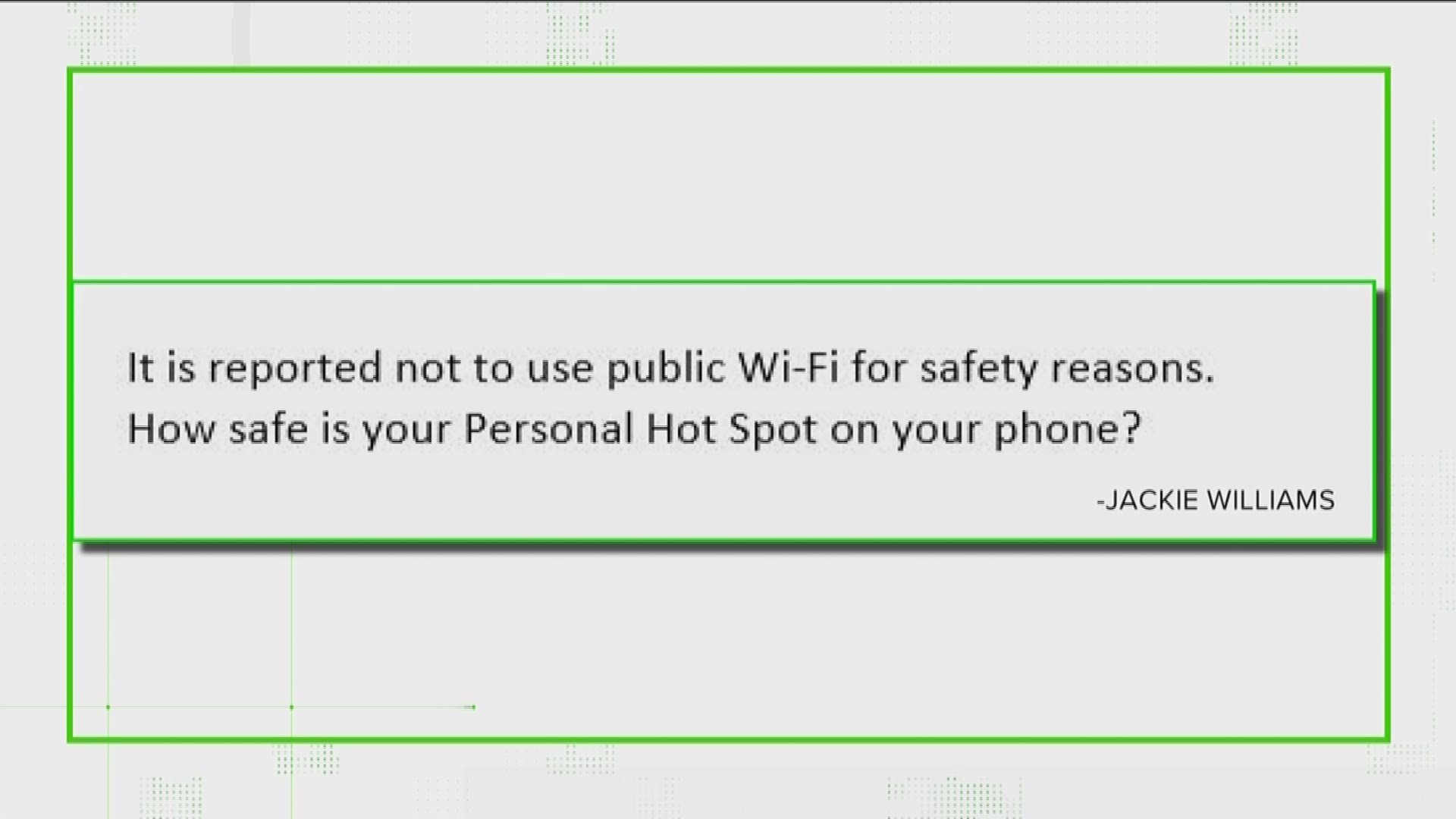ATLANTA — You may be familiar with the risks of connecting to public WiFi, so you turn to your phone's mobile hot spot instead. But how safe is that connection?
That was the question 11Alive received from a viewer wanting to know more about her phone's security. To verify, our team turned to cyber security expert and Kennesaw State University lecturer Andy Green for answers.
First, a little about how that hot spot works.
"When we talk about setting up a hot spot on a personal device, we're talking about using cellular bandwidth to set up a private network just for yourself," Green explained. "If you set it up with a robust password…you don't have to worry about hundreds of people."
Sounds private, right? But as Green explains, the personal hot spot still may be monitored by your cellular provider. So if you're assuming your connection is totally private, don't.
"It's more secure than riding on a publicly available network, but there are still risks associated with it," explained.
However, Green said the likelihood the majority of phone users would be targeted is small.
"Where we start seeing specific devices like these targeted we're thinking high value targets…think political figures, think national leaders," he said.
Nevertheless, Green never connects his device without an extra step.
"My recommendation is always use a personal VPN, period," he said.
The VPN, or virtual private network, protects your privacy by encrypting what's sent and received via the internet.
"So it doesn't matter if you're attaching to the Atlanta airport network or Starbucks or your personal hot spot," he said. "No matter which network you're on, if you utilize a personal VPN, that traffic is encrypted…and nobody can see it period."
So the idea that your personal hot spot is 100% secure? That's false. Green said you're still vulnerable without a VPN. Even then, he said there is no guarantee when it comes to security.
"You're not perfectly secure in a physical environment ever. You're never going to be perfectly secure in a digital environment either," he said.
MORE VERIFY

